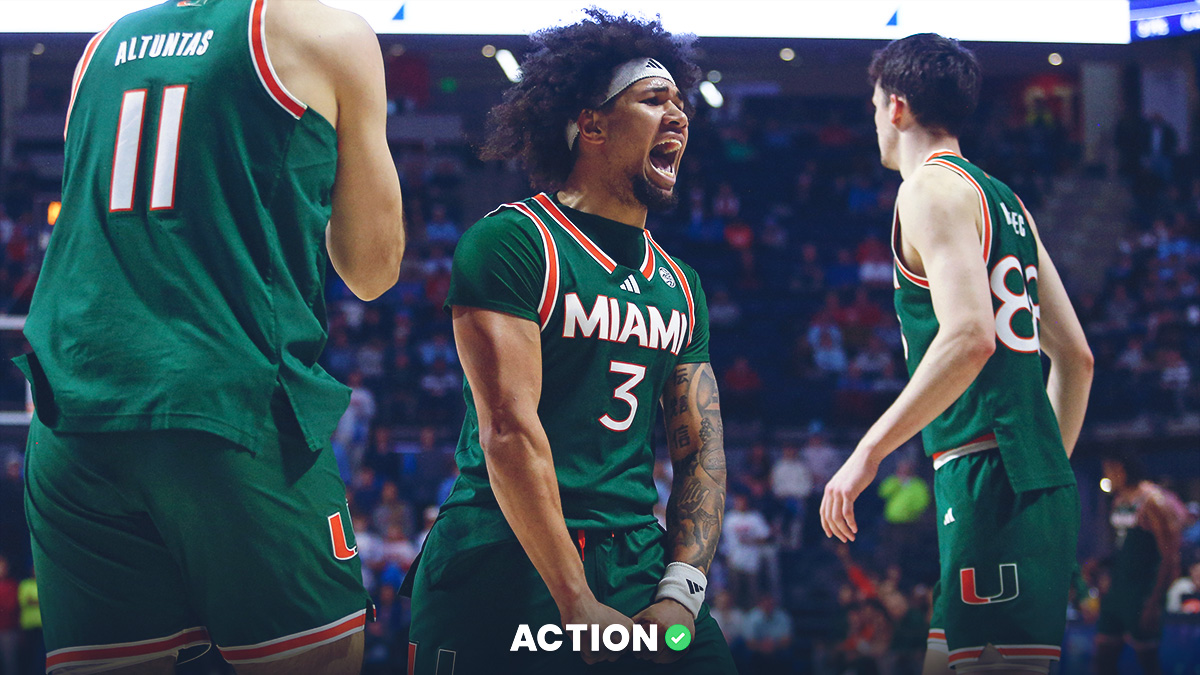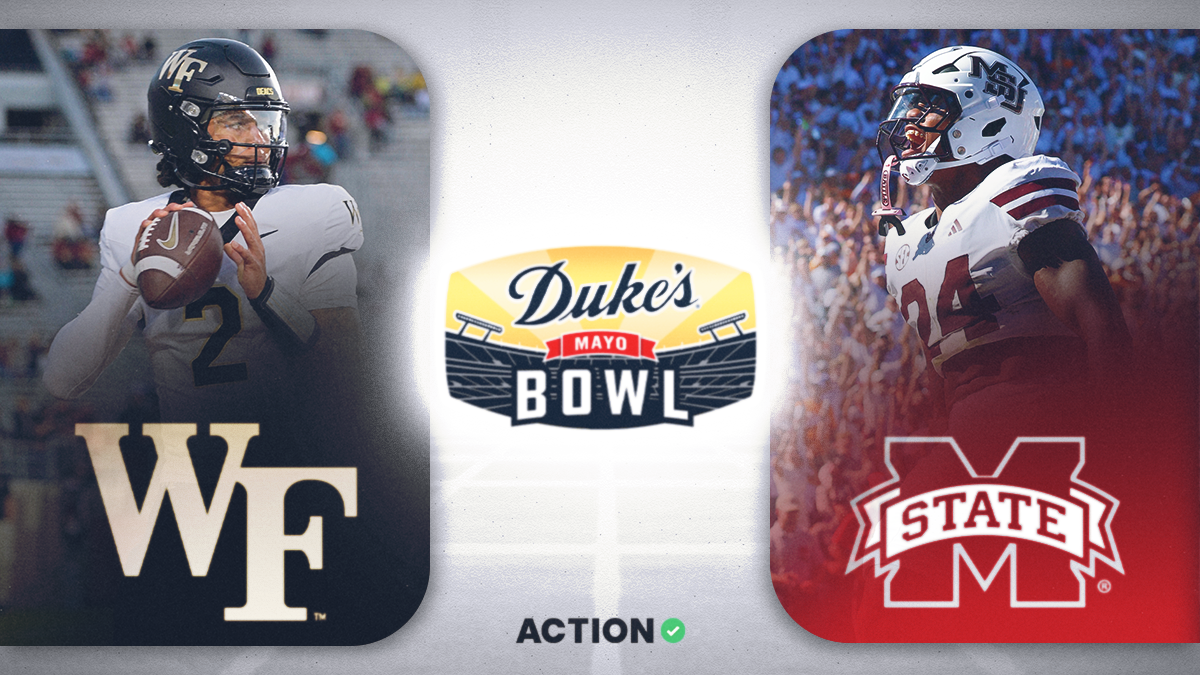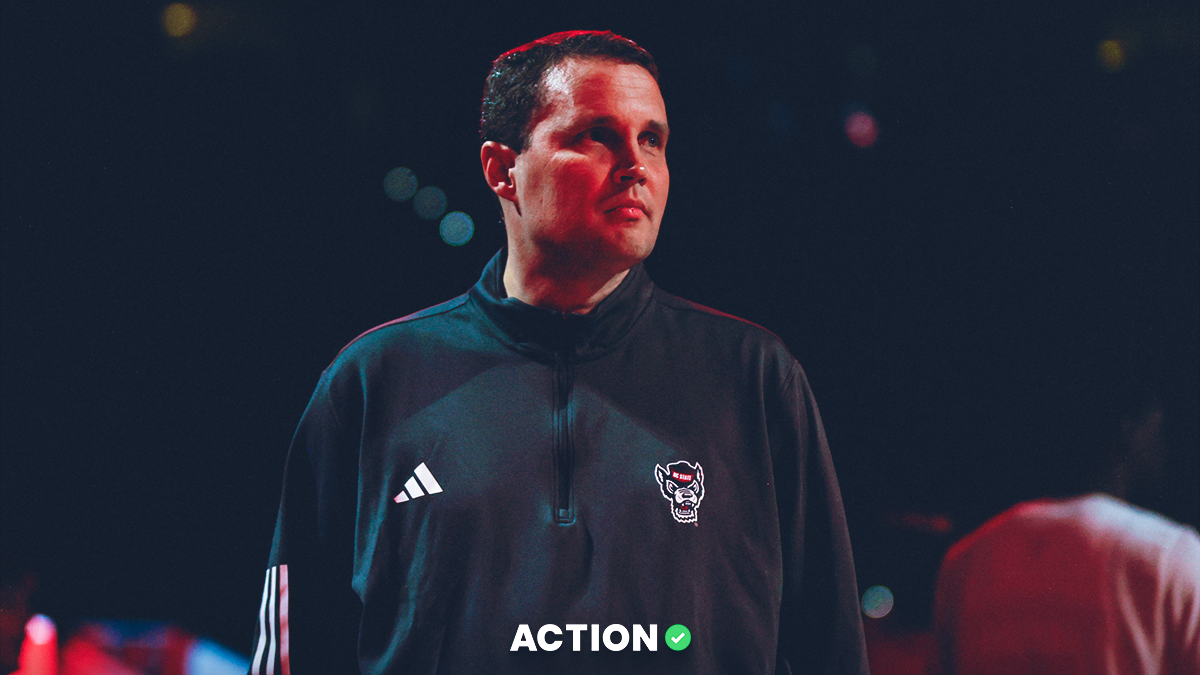
Wake Forest Demon Deacons Odds
- Overall Record
- 8-4
- ATS Record
- 8-4-0
Demon Deacons Injuries
All NCAAF InjuriesThere are no injuries for this team currently.
Demon Deacons 2026 Schedule & Betting Odds
| date | opponent | score | spread | over/under | moneyline |
|---|---|---|---|---|---|
| Jan 3rd | @MSST | W 43-29 | +3 W | O 52.5 | WF +124 |
| Nov 29th | @DUKE | L 32-49 | +2.5 L | O 53.5 | DUKE +110 |
| Nov 22nd | DEL | W 52-14 | -17.5 W | O 49.5 | WF -998 |
| Nov 15th | UNC | W 28-12 | -3.5 W | O 37.5 | WF -172 |
| Nov 9th | @UVA | W 16-9 | +6.5 W | U 48.5 | WF +202 |
| Nov 1st | @FSU | L 7-42 | +12.5 L | U 51 | FSU +330 |
| Oct 25th | SMU | W 13-12 | +5.5 W | U 52.5 | WF +170 |
| Oct 11th | @ORST | W 39-14 | -1.5 W | O 47.5 | WF -125 |
| Oct 4th | @VT | W 30-23 | +5 W | O 51 | WF +164 |
| Sep 27th | GT | L 29-30 | +16.5 W | O 53.5 | GT +410 |
Wake Forest is one of the forgotten teams of the ACC, though the Demon Deacons have put up impressive showings in semi-recent history, they struggled mightily in 2024 and 2023.
Currently, you can track everything from national championship odds to playoff futures on Action Network. Beyond just the overall team stats, you can take a look other markets like who has the best chance to win the Heisman or the futures market on the most wins.
We’ll go over all of the different ways you can wager on the Demon Deacons in the paragraphs below.
Betting on the Demon Deacons
We’ve provided a quick overview of some of the different betting markets for Wake Forest, but we’ll get into the specifics more below.
Futures, as mentioned above, provide an easy entrypoint to Wake Forest betting for players that are unfamiliar. Broadly speaking, futures are just a wager on any event happening in the future — hence the name. That said, it can be very specific or very general. They serve as a good initial entry because they can pay out substantially.
Something like ACC Championship odds is a solid jumping off point but you can test your luck with some of the other markets we mentioned above.
Setting aside futures for a moment, there are also individual game markets, which bettors may also be familiar with. Markets like moneylines, points spreads and totals are the most common and the three we will focus on today.
Wake Forest moneyline betting
A moneyline wager is, to put it simply, a wager on the winner of a contest. With good teams, moneyline bets are usually a solid market. With struggling teams, they’re obviously less likely to hit.
Moneylines are displayed with the favorite as negative odds and the underdog as positive odds, reflecting the value of the potential payout.
So, when wagering on sportsbooks like FanDuel or DraftKings, you’ll likely see them displayed something like this:
- Wake Forest Demon Deacons (+127)
- Duke Blue Devils (-101)
In this instance, the Blue Devils would be the favorite and expected winner. Thus a wager on them would not payout as much as a wager on Wake Forest. Given the odds shown above, a $100 wager on Wake Forest would payout $127 in profit.
Moneylines, while common, are not as popular as a solo market anymore. That said, they’re often paired with additional bets to create a parlay, which is when you use multiple wagers — referred to as legs in this context — to create a larger bet and thus a larger payout. To win, you’ll need all legs to hit. You can use the Parlay Calculator on Action to determine the best wagers to pair together. Beyond just that, you can compare parlay prices using another helpful Action Network tool.
Wake Forest point spreads
Betting the spread, as it’s commonly called, is deployed often in college football. Betting on the spread is a wager on the difference between the winning and losing teams’ scores. When someone bets on a team to “cover the spread” they’re betting on one team to win or lose by more or less than expected.
As opposed to moneylines that simply display the odds, there are two components here. One is the actual point spread, the other is the odds for each which are typically the same or very similar.
This is an example you might see at bet365, Fanatics Sportsbook or other operators:
- Wake Forest +7.5 (-110)
- Boston College -7.5 (-110)
With this example, Wake Forest is expected to lose by at least eight points. Betting on the Demon Deacons to cover here would be a wager that they lose by less than eight points. A wager on BC to cover is a bet on the Golden Eagles to win by at least eight points or more.
Critically, a wager on the underdog team to cover is not that you expect them to win but rather you expect them to lose by less than the sportsbooks have identified.
Given the odds displayed, you’d need to wager $1.10 in cash to win $1 in profit.
Betting the Wake Forest total
Totals, often called betting the over or under, are another common market in college football. Put simply, a bet on the total is a wager on the complete number of points scored by both teams. Football scores are much easier to predict that basketball or even baseball, hence the proliferation of the markets.
Betting the over is a wager that the score will go over the expected total, while betting the under is the inverse.
Say you have a matchup between the Demon Deacons and the Virginia Tech Hokies:
- Over 48.5 (-120)
- Under 48.5 (-102)
A bet on the over, thus expecting the total score to be at least 49 or higher, pays out slightly less. You’d need to bet $1.20 in cash to get $1 in profit. Conversely, you’d need to bet $1.02 in cash to get $1 profit betting on the under.
Wake Forest player props
Player props are unique in college sports because they occupy a different legal space. Many states that allow for online sports betting on collegiate markets do not allow for players props. That said, you can review the complete list of states that do allow college props here.
A player prop is simply a wager on a specific statline for a specific player. It can be something like receptions or you can get more granular and wager on the number of rushing touchdown per half.
Whatever market you choose, be sure to review the odds and assess the potential payout. Companies like PrizePicks and other DFS operators have contributed to the increased popularity of player props across collegiate and professional leagues.



